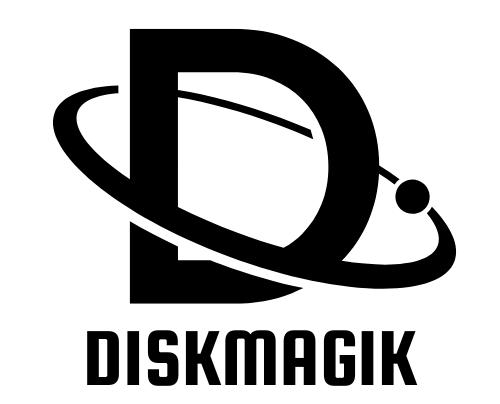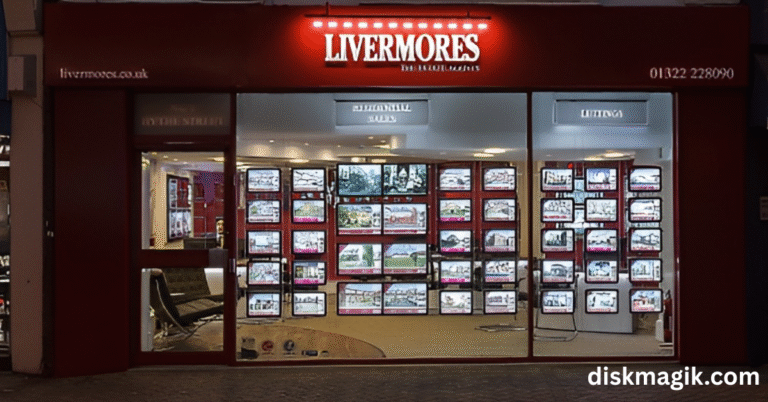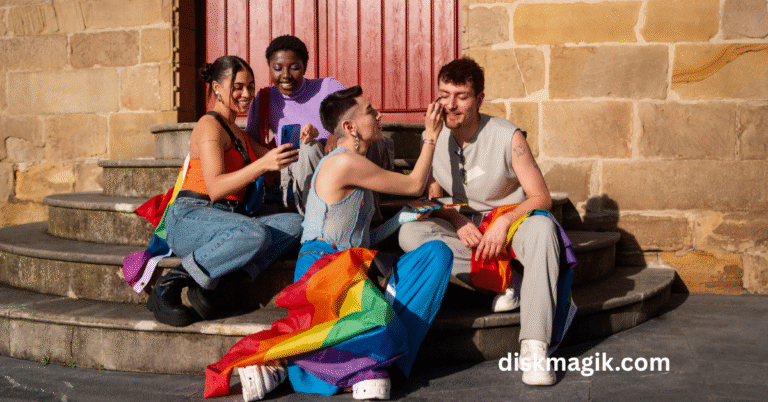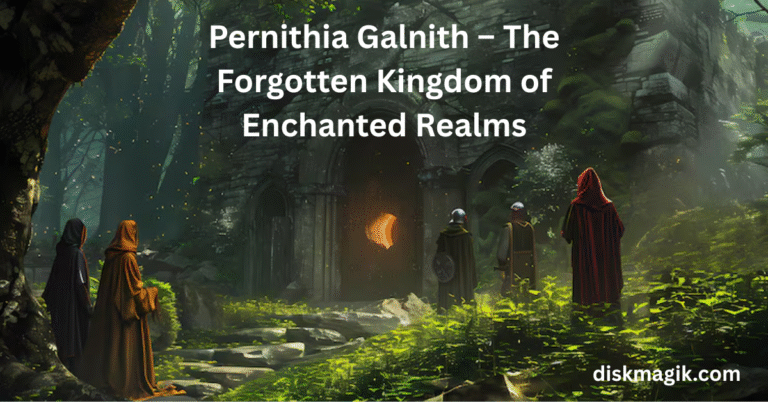Mcnames: Complete Guide, Meaning, Uses, and Interesting Insights
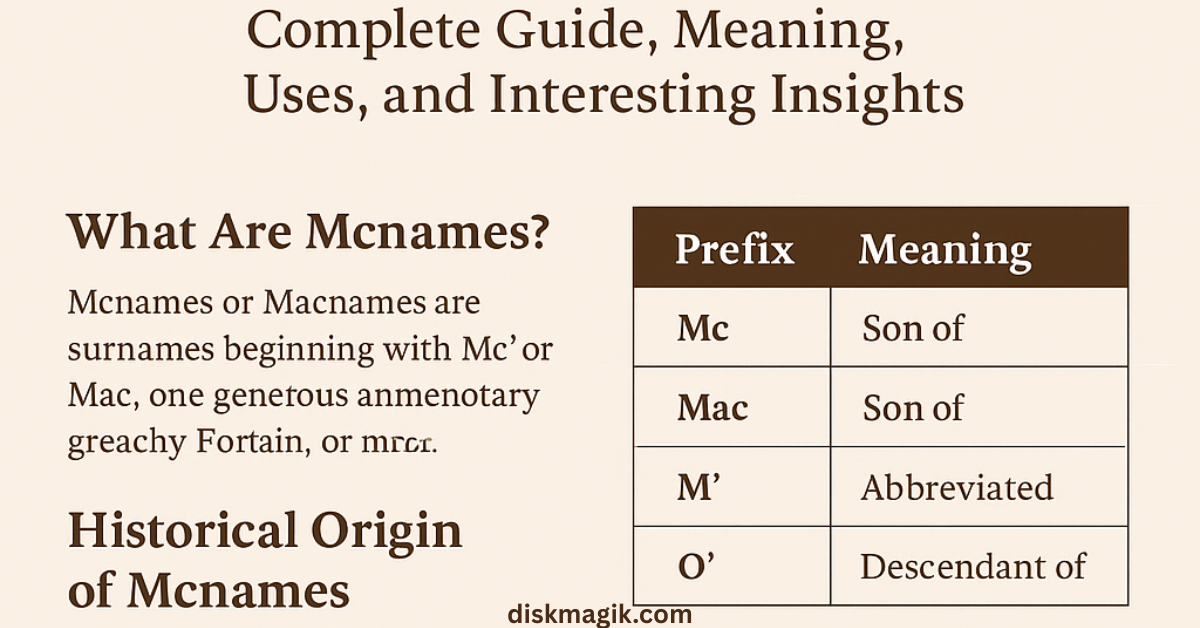
Introduction
The term Mcnames carries a blend of modern identity and cultural heritage, symbolizing the importance of family names and their historical roots. Often associated with Scottish or Irish surnames beginning with the prefix “Mc” or “Mac,” Mcnames represent lineage, ancestry, and belonging. In today’s digital age,it are not only a symbol of heritage but also a popular keyword in genealogy research, online naming databases, and cultural history projects.
In this detailed guide, we’ll explore what are, their origins, common variations, popular examples, meanings, and how these names continue to shape personal identity in modern society.
What Are Mcnames?
“Mcnames” generally refers to surnames that begin with “Mc” or “Mac”, which are Gaelic prefixes meaning “son of.” These surnames are found predominantly in Scotland, Ireland, and Northern England. They denote lineage — for example, McDonald means son of Donald and McGregor means son of Gregor.
Today, Mcnames are recognized globally and hold deep connections to family traditions, clans, and ancestral pride.
Historical Origin of Mcnames
The “Mc” and “Mac” prefixes come from the Gaelic word “Mac,” which means “son.” During the medieval period in Scotland and Ireland, clans used this naming convention to identify ancestry. Over time, these names evolved and spread across continents due to migration and colonization.
| Prefix | Meaning | Example | Modern Usage |
|---|---|---|---|
| Mc | Son of | McDonald | Common in Ireland, Scotland, USA |
| Mac | Son of | MacKenzie | Found in Scotland and Canada |
| M’ | Abbreviated form | M’Carthy | Historical documents only |
| O’ | Descendant of | O’Brien | Irish origin prefix |
This table highlights the structural evolution of Mcnames over time.
Common Examples of Mcnames
Here are some of the most well-known it used worldwide:
- McDonald – Son of Donald, meaning “world ruler.”
- McCarthy – Son of Carthach, meaning “loving.”
- McGregor – Son of Gregor, meaning “vigilant.”
- McKenzie – Son of Coinneach, meaning “fair or handsome.”
- McIntyre – Son of the carpenter.
- McLean – Son of Gillean, meaning “servant of John.”
These names hold strong historical significance and remain popular in English-speaking nations.
Cultural Importance
In Celtic and Gaelic cultures, a person’s name was more than just an identifier — it was a symbol of heritage and pride. Clan systems used Mcnames to establish familial connections and loyalty within a community. Even today, these names preserve cultural memories of ancient clans and territories.
For example:
- Clan McLeod of the Isle of Skye is one of the oldest Scottish clans.
- Clan McGregor was famously outlawed in the 17th century but survived through strong family ties.
Such stories make it a bridge between ancestral identity and modern genealogy.
Modern Relevance of Mcnames
In the digital era, Mcnames have taken on new importance. Many people explore their family history using DNA testing and surname tracking websites. it are frequently searched in online databases like Ancestry.com and FamilySearch, helping individuals trace their lineage back to centuries-old Gaelic roots.
Additionally, Mcnames often appear in pop culture, sports, and media — for example, Ronald McDonald (the global mascot of McDonald’s) or Ewan McGregor (a famous Scottish actor). These references have helped Mcnames retain a strong identity in global culture.
Interesting Facts About Mcnames
| Fact | Detail |
|---|---|
| Oldest Recorded Mcname | MacBeth (meaning “son of life”) from the 11th century |
| Most Common Mcname Worldwide | McDonald |
| Countries With Highest Mcname Population | Scotland, Ireland, USA, Canada, Australia |
| Symbolism | Represents lineage, heritage, and clan identity |
| Popularity in Media | Seen in movies, books, and brand names |
How Mcnames Differ From Other Surnames
Mcnames differ from English, French, or German surnames because of their patronymic structure. While English surnames may describe occupations (Smith, Baker), Mcnames highlight ancestry and lineage.
| Surname Type | Origin Example | Meaning |
|---|---|---|
| McName | McDonald | Son of Donald |
| Occupational | Smith | Metalworker |
| Descriptive | White | Person with fair complexion |
| Locational | Hill | From the hills |
This distinction makes Mcname historically significant and deeply personal to those who bear them.
Why Mcnames Remain Popular Today
There are several reasons Mcnames remain widespread:
- Migration and Globalization: Gaelic families settled worldwide, spreading their names.
- Cultural Preservation: Many families maintain Mcname to honor ancestry.
- Recognition and Prestige: Mcnames often carry respect and recognition.
- Ease of Adaptation: The prefix “Mc” fits naturally in English naming structures.
Whether it’s for tradition or style, it remain timeless and respected.
Modern Use in Branding and Business
Interestingly, the “Mc” prefix has become a symbol of trust and familiarity in branding. Companies like McDonald’s have turned it into a global identifier of quality and consistency. The use of “Mc” in brand names often suggests heritage, reliability, and family values.
Conclusion
Mcname are far more than just surnames — they are living records of history, family, and cultural identity. Originating from Gaelic traditions, they connect millions of people to their ancestral past. From medieval clans to modern corporations, it have evolved while preserving their symbolic meaning.
In a world where identity often shifts, Mcname remind us of our roots — linking families, traditions, and generations across centuries. Whether in genealogy, branding, or daily life, it carry stories that continue to inspire pride and belonging.
FAQs
Q1. What does “Mc” mean ?
It comes from the Gaelic word Mac, meaning “son of.” It shows lineage or ancestry.
Q2. What are some examples ?
Common examples include McDonald, McGregor, McCarthy, McLean, and McKenzie.
Q3. Are Mcnames Irish or Scottish?
They originate from both Ireland and Scotland, where Gaelic was widely spoken.
Q4. Why are Mcnames so common in the USA and Canada?
Migration from Ireland and Scotland during the 18th–19th centuries spread these names to North America.
Q5. Is there a difference between “Mc” and “Mac”?
Both mean the same (“son of”), but “Mac” is more Scottish and “Mc” more Irish in common use
